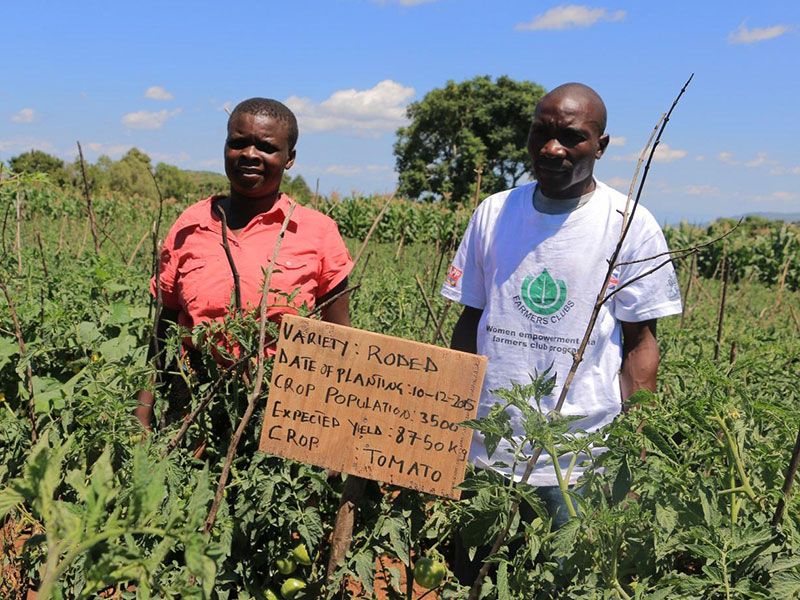Empower Rural Women – End Hunger & Poverty
Empower Rural Women – End Hunger & Poverty

The contributions of rural women are central in food production and food security. Therefore it is also necessary to spearhead
efforts to expand their opportunities to economic participation and gender equality.
The potential for sustainable development and poverty reduction through social and economic growth will not be reached unless there is a true concerted effort by committed government and development agencies to work towards gender equality and women’s empowerment. The commitment of the world leaders to adopt the Sustainable Development Goals which have aims of gender equality, ending hunger and eradicating poverty carry the right vision to draw the strength needed to empower rural women.
A World Bank report states that in Africa, while women constitute about 60% to 70% of the agricultural work force, men generally make key farm management decisions. As a result, agricultural extension services have traditionally focused on men and their production needs.
Gender equality is central to achieving food security for all by raising levels of nutrition, improving agricultural productivity and natural resource management, and improving the lives of rural populations. Humanity can accomplish its other goals only if it simultaneously works toward gender equality and supports the empowerment of rural women as agricultural producers.
The DAPP Malawi’s Women Farmers’ Clubs does just that, by encouraging that women and men work hand in hand to improve food security and the economic status of their families. The project in rural areas of Blantyre district is aimed at improving household food, nutrition and income security. The Jera family is proud to have achieved a lot of progress since they started working within the structure of the Farmers’ Club. They produce tomatoes on a large scale. Patrick Jera says that at first he used to think that the benefits of the Farmers’ Club were only for women and that men were not welcome to participate in the project activities.
“We have made a lot of progress at our household. We raise livestock and we have also built a house with corrugated iron sheets. This could not have been possible if I did not work with the Farmers’ Club structure,” said Mary Jera.
Mary Jera, a member of Tione Farmers’ Club, says her husband was receptive to the information that was brought from the clubs meetings and they together decided to develop the tomato field to economically empower their household. The project has been providing extension services and inputs to the family.
“As a family we will continue to engage with the other farmers in the Farmers’ Clubs until we realize better markets for our produce as currently we can only sell the tomatoes within the community,” said Mary Jera.
A total of 10.250 women are taking an active part in the Farmers’ Clubs for Women in the district of Dowa and Blantyre rural.
September 2016

